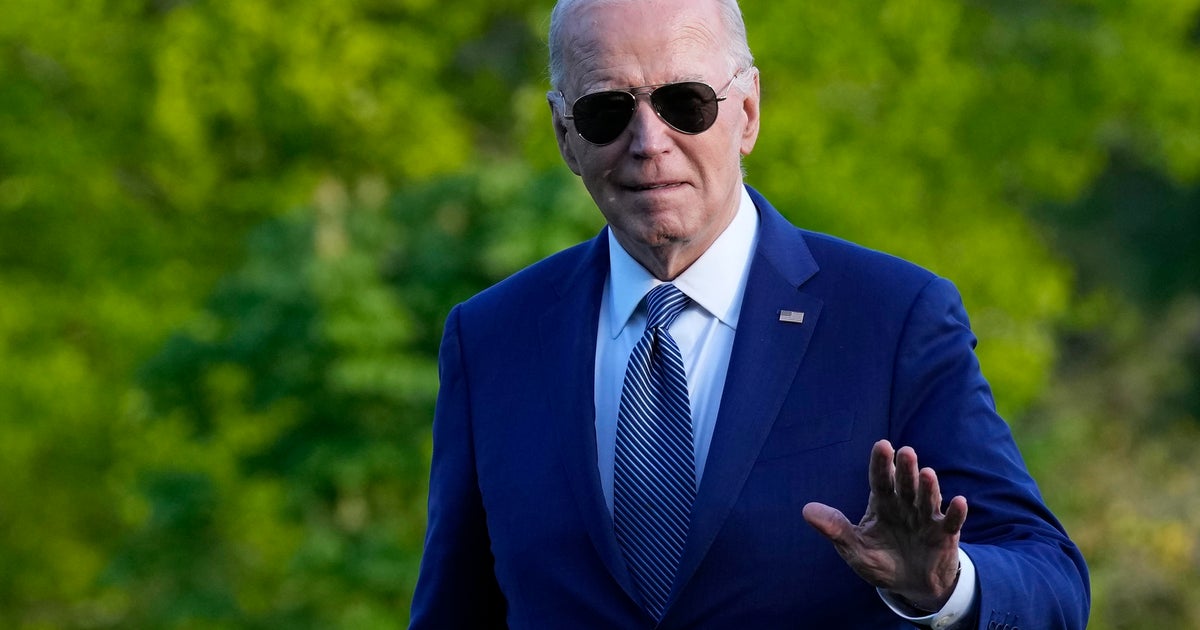Are bogus visas being used to work in the U.S.?
The H-1B visa program that brings tens of thousands of temporary workers to the U.S. each year is under scrutiny by the Trump administration, which wants to limit the number of foreigners coming into the country. Drawing less attention is how people might use bogus visas, as well as fake academic degrees, to enter the U.S.
There's precedent for such concerns. The Nigerian man who pleaded guilty to trying to blow up a U.S.-bound plane on Christmas Day of 2009 had previously tried to return to London to study "life coaching" at what British officials determined was a bogus college, while one of the September 11 hijackers came to the U.S. on a student visa to attend an English-language school in California. but instead took flight lessons in Arizona.
The General Accounting Office in 2011 recommended that the departments of Homeland Security and Labor take steps to improve their monitoring of the H-1B program, saying that it was unknown just how many H-1B workers were in the U.S. at any one time and how long they had been in the country.
The watchdog agency the following year found that U.S. Immigration and Customs Enforcement, or ICE, had not implemented fraud-prevention practices to verify the legitimacy and eligibility of schools giving out student visas, both during their initial certification and after these schools began accepting foreign students. A number of schools certified to issue visas to international students were not licensed by the state in which they operated.
In a 2012 congressional hearing, Sen. Charles Schumer, D-New York, spoke of "the illegal use of student visas by foreign nationals to attend sham schools." As an example, he pointed to Tri-Valley University in Pleasanton, California, where more than 1,500 students from foreign countries obtained visas to enroll in an unaccredited school "that failed to provide education."
"The corruption of the visa process is one of the large-scale dangers the degree industry is posing," said George Gollin, a physics professor at the University of Illinois-Champaign who began tracking diploma mills after getting spam from one, and who wound up helping bust a multimillion-dollar diploma mill.
While Gollin and other experts estimate there are thousands of doctors across the U.S. practicing medicine with fake credentials, the dangers posed by fraudsters selling phony certificates needed to enter the country is possibly more frightening.
"It's not the same threat of a [phony] doctor, who might kill one person at a time, but the potential of allowing mass murderers to come into the United States," Gollin said.
Several years after the September 11 attacks, he aided federal and state authorities in shutting down a diploma mill that also ran a related business purporting to review credentials for H-1B visas.
In Operation Gold Seal, a Secret Service agent posed as Mohammed Syed, purporting to be a former Syrian Army chemical engineer, who in 2005 emailed a diploma mill called James Monroe University for information on which degrees would help him obtain an H-1B visa to stay in the U.S. Syed paid $1,277 for three degrees from the school's website, one of some two dozen degree-granting entities run by Washington state residents Dixie and Steve Randock. The couple netted an estimated $7 million in sales of fake credentials to about 9,600 people in 131 countries.
"The Randocks sold a lot of degrees into countries we have difficult relationships with," said Gollin, who listed Saudi Arabia, Pakistan and Dubai as among them. "They were also running a couple of sites intended to help people with the [H-1B] visa program."
In interviews with investigators, some of the Randocks' employees were "concerned about the large number of degrees being sold into the Middle East so soon after 9-11," recalled Gollin. "The takeaway point is, people who sell fake academic degrees can't be relied upon to have the scruples to not sell to terrorists."
An affidavit filed in the case details how Daisy Randock paid for the assistance of Sheila Danzig, owner and operator of Career Consultants International, or CCI, a foreign credential evaluator.
"I did evaluations for St. Regis and it ended up being a big fraud," Danzig said in an interview in describing St. Regis University, which claimed to be based in war-torn Liberia and was run by the Randocks. Danzig said she made calls to Liberian officials for assurances that St. Regis was legitimate, and was shocked to learn that she'd been duped.
Danzig previously owned a web domain Degree.com, which Texas officials in 2001 linked to an online distance-learning school fined $213,000 in 2001 for lacking state authority to grant degrees or call itself an institution. She acknowledged that an attorney had made a mistake in not registering the school in Texas, and said a settlement had been worked out.
CCI in 2004 came under fire again in Georgia after evaluating the credentials of a dozen educators in the state who'd earned advanced degrees from St. Regis. The situation in Georgia was "unfortunate, because everyone was misled," Danzig said.
The Randocks pleaded guilty to charges of conspiracy to commit mail and wire fraud, and in 2008 both were sentenced to three years in prison. Danzig, described by Golllin as "a person of interest in the investigation of St. Regis," and someone who was "working with Dixie to help people apply for visas in the U.S." was not charged.
Danzig, who denies being involved with any visa-related work with Dixie Randock, now offers evaluations for immigration, university admissions and employment through a website, thedegreepeople.com, run by CCI in Fort Lauderdale, Florida The site includes a Feb. 22 post entitled "H-1B Case Study: Approved with NO College Credit!"
Dixie Randock, who was released from a federal prison in 2011, one year later was working as an online psychic, advertising herself as being able to bring back former lovers or helping customers lose weight, according to The Spokesman-Review.



